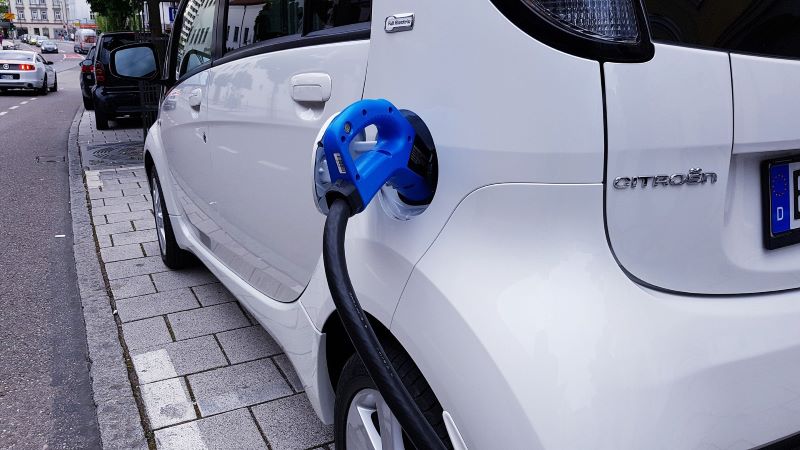New registrations of passenger cars with alternative drive systems rose by 6.7 percent in October compared to the same month last year. 112,427 vehicles were registered by the Federal Motor Transport Authority. In the first ten months since the beginning of this year, 18.2 percent more new electric vehicles, hybrids with and without plugs and gas-powered cars were registered than in the same period last year, a total of 1,125,182 units. Alternative drive systems have achieved an overall market share of 47.7% since January.
Among the alternative drive systems, hybrids without plugs in particular recorded a significant increase in new registrations. 57,575 new units rolled onto the roads in October 2023, an increase of 57.9% compared to the same month last year. This included 8,253 full hybrids, in which the VDIK brands have a market share of 94 percent.
In contrast, only 4.3 percent more battery electric passenger cars (BEV) and 49 percent fewer plug-in hybrids were registered last month than in the same month last year. In total, 37,334 new BEVs and 16,361 new plug-in hybrids were registered in October. The weak growth in BEVs in October continues to be linked to commercial registrations being brought forward in August. The subsidy for commercial electric car registrations ended on August 31. In the first ten months of 2023, 424,623 battery electric cars were newly registered (up 37.7% compared to the same period last year). In addition, 139,706 plug-in hybrids were newly registered (down 43.6%).
Up to and including October 2023, 10,914 passenger cars powered by liquid gas were also newly registered (down 11.5 percent), as well as 255 fuel cell passenger cars.
The VDIK regularly updates the list of electric vehicles from international manufacturers. VDIK member companies currently offer over 200 electric models (passenger cars and commercial vehicles) that customers in Germany can order. The VDIK electric list can be accessed here.
In the overall passenger car market, alternative drive systems have achieved a share of 47.7 percent since the beginning of the year. Petrol engines achieved a market share of 34.9 percent, while diesels only accounted for 17.4 percent.
| October | January – October | ||||||
|---|---|---|---|---|---|---|---|
| +/- (%) | +/- (%) | Share of total car market |
Market share VDIK (%) |
||||
| BEV | 37,334 | 4,3 | 424,623 | 37,7 | 18,0 | 39 | |
| PHEV | 16,361 | -49,0 | 139,706 | -43,6 | 5,9 | 34 | |
| FCEV | 3 | -92,1 | 255 | -61,7 | 0,0 | 90 | |
| Electric Vehicles (total) | 53,698 | -20,9 | 564,584 | 1,4 | 24,0 | 38 | |
| HEV including: |
57,575 | 57,9 | 548,430 | 43,9 | 23,3 | 43 | |
| full hybrid | 8,253 | 35,5 | 78,535 | 32,2 | 3,3 | 94 | |
| mild hybrid | 49,332 | 62,4 | 469,895 | 61,3 | 19,9 | 35 | |
| CNG | 65 | -48,4 | 1,254 | -22,1 | 0,1 | 61 | |
| LPG | 1,089 | 17,5 | 10,914 | -11,5 | 0,5 | 98 | |
| Alternative Drivetrains (total) | 112,427 | 6,7 | 1,125,182 | 18,2 | 47,7 | 41 | |
| Petrol | 71,646 | 7,5 | 822,135 | 13,2 | 34,9 | 39 | |
| Diesel | 34,881 | -4,6 | 409,708 | 2,8 | 17,4 | 32 | |
| for information: | |||||||
| Passenger car (total) | 218,959 | 4,9 | 2,357,025 | 13,5 | 39 | ||
Electric vehicles: BEV, PHEV und FCEV
BEV, Batterieelektrisches Fahrzeug, engl: Battery Electric Vehicle
PHEV, Plug-In-Hybrid, engl: Plug-In Hybrid Electric Vehicle
FCEV, Brennstoffzellenfahrzeug / Wasserstofffahrzeug, engl.: Fuel Cell Electric Vehicle
Hybride, Hybrid ohne Stecker bzw. nicht aufladbar, engl.: Hybrid Electric Vehicle
CNG, Gasförmiges Erdgas, engl: Compressed Natural Gas
LPG, Flüssiggas bzw. Autogas, engl: Liquified Petroleum Gas
Models with a maximum e-motor output of 20 KW are classified as mild hybrids, while full hybrids have a maximum e-motor output of more than 20 KW.





